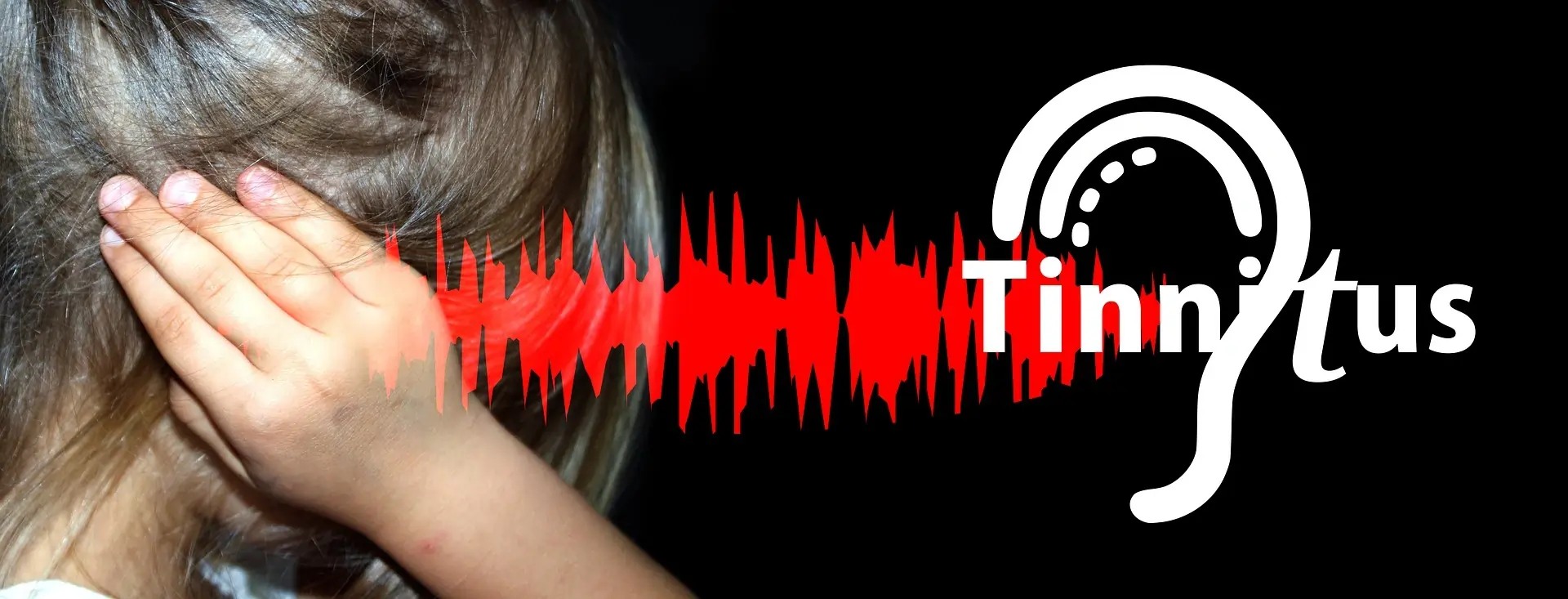In tinnitus, the sound a person hears in the ears that isn’t coming from outside. It can last a minute or stay on continuously but affects millions worldwide. Many other reasons a person develops tinnitus, such as loud sounds, ear infections, etc., and memory foam pillows’ density, are overlooked. This article will discuss whether Can Dense Memory Foam Pillow Cause Tinnitus. If that is so, what can you do to protect yourself from any risks?
Understanding Tinnitus
Let’s first take a quick look at tinnitus before we get into more specific dense foam pillows. Tinnitus is a disease symptom similar to ear pain. It can occur due to many factors. Below, I’ve mentioned factors that cause ear pressure.
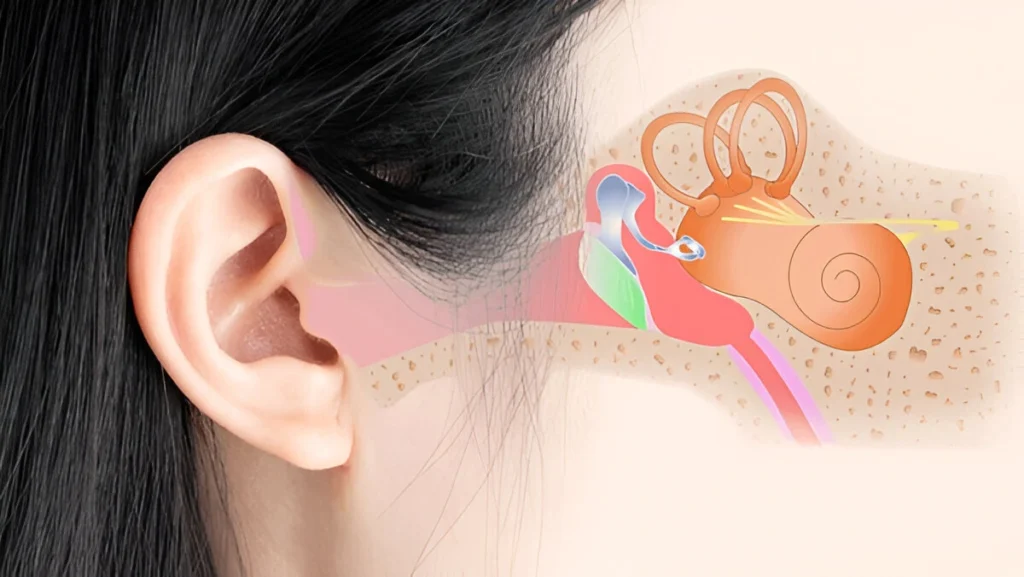
- Hearing Loss: Age-related hearing loss may be due to tinnitus. People sometimes find their auditory disturbances due to the delicate hair cells that can be damaged inside people’s inner ear holes, while, at times, due to ageing.
- Exposure to Loud Noise: What is tinnitus? Tinnitus is an inner ear symptom in which you hear loud sounds in your head and ears. This could be from being around a loud sound, like going to a concert, machinery, or even your headphones.
- Avoid Loud Noises: If you decide to use your earplugs, noise-cancelling headphones, or white noise machine, these can reduce further testing of your hearing loss and tinnitus.
- Seek Professional Help: If the ringing does not disappear, reoccurs, or worsens, you should see your audiologist again or speak to your family doctor. They have ample opportunity to understand you well and even enlighten you on the right concoction to read.
Types of Tinnitus
Tinnitus can be divided into two main types that are mentioned below.
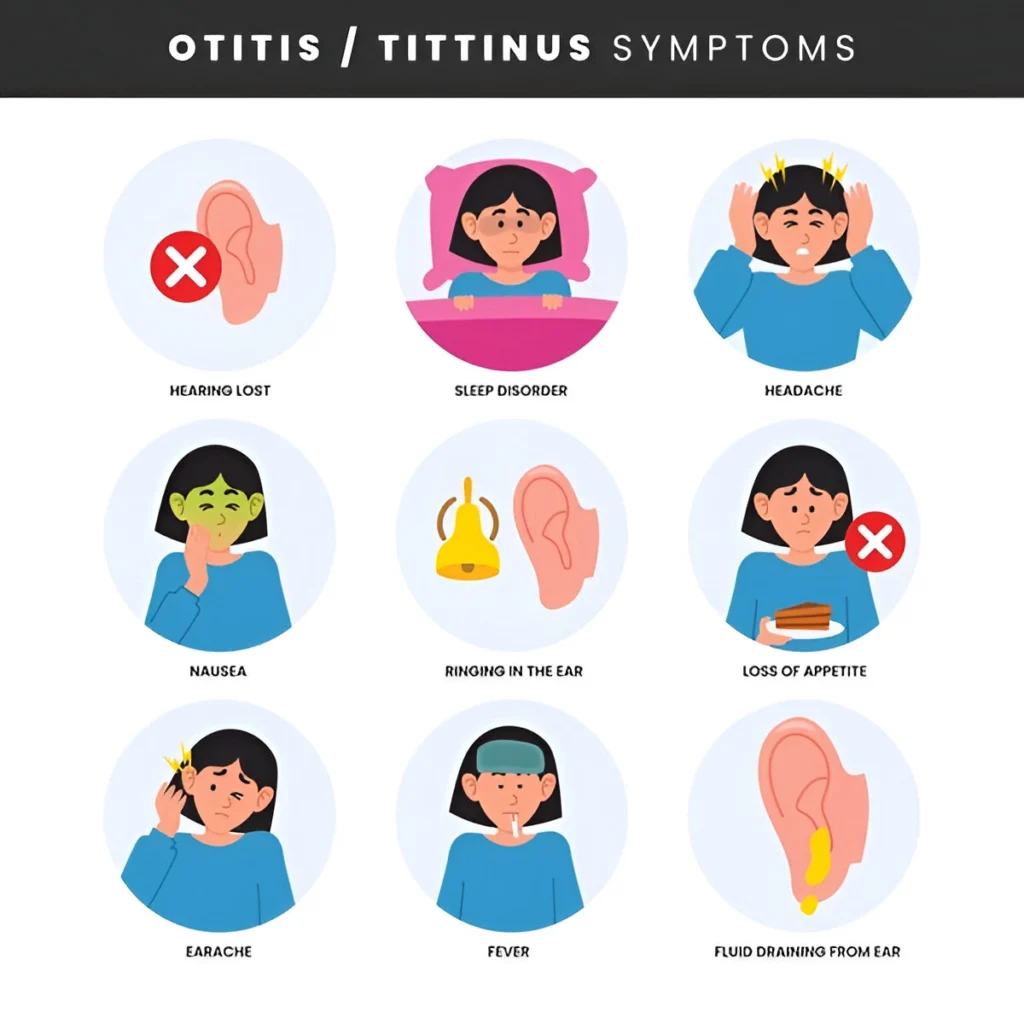
- Subjective Tinnitus: The most typical form manifests as the only person who can hear the sound. Sometimes it is linked with hearing loss or injury in the auditory system in the human ear.
- Objective Tinnitus: An examiner will hear this rare process, usually because of vascular or muscular problems. Such conditions as blood vessel disorders and muscle spasms may be linked.
Can Dense Memory Foam Pillow Cause Tinnitus?

Memory foam pillows are made to support the neck and the head with shaped memory foam. Since memory foam pillows tend to be dense, particularly those made from high-quality foam that provides proper neck support, they’re highly preferred by people who experience neck strain or back pain. This pillow will help put your spine in its proper alignment and remove or decrease pressure points from certain parts of your body, and it is a good choice for a good night’s sleep.
Dense Memory Foam Pillows Benefits

Support
- They supply firm support for the head and neck, reducing pain and discomfort. This is especially useful for side sleepers who need more support to maintain spinal alignment.
Pressure Relief
- This orthopedic pillow keeps the body in line, allowing the material to disperse the weight evenly. This can lower pressure points and promote more comfortable sleep in daily life.
Allergy Resistance
- Hypoallergenic pillows are dense pillows that fight other allergens and dust mites to provide an allergy-free sleeping environment.
Durability
- It usually lasts longer than a traditional pillow; a bigger memory foam pillow maintains its shape and keeps support even through time. People with allergies can use it. To smoothen their sleeping environment, they fight dust mites and other allergens.
Temperature Regulation
- Some advanced memory foam pillows have heat retention and cooling technology to prevent sleepers from becoming too hot.
Can Dense Memory Foam Pillow Cause Tinnitus?
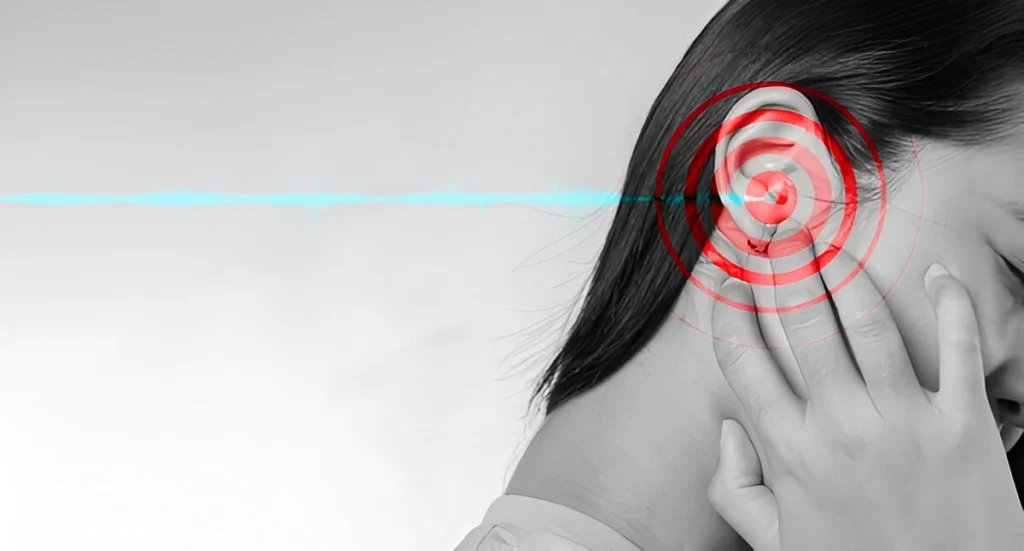
- The question remains: Would he begin piling up with dense memory foam pillows and get tinnitus? Even though there is no scientific evidence that hard memory foam pillows cause tinnitus, some things are known to cause and produce tinnitus sensations.
Connection Between Memory Foam And Tinnitus

1. Allergic Reactions
Some things used to manufacture memory foam can cause allergies, and not all people like memory foam. They may be true if you suffer from an allergic reaction and the body is inflamed. Other symptoms may include headaches, worsening ear pain and tinnitus, and a blocked nose.
2. Neck and Spine Alignment
People who can’t sleep lie on the wrong side of themselves, which puts the neck and spine out of track. Tightening the muscles around their heads and necks could improve their tinnitus, but it could also make them more rigid, which is not good.
3. Sleep Quality
Sometimes, you don’t want your bed to support you, but you must sleep simultaneously. Poor sleep quality also contributes to worsening tinnitus and extreme irritability caused by stress. Lack of restorative sleep can also make tinnitus louder and more aware.
4. Noise Sensitivity
Dense memory foam pillows can make some people more sensitive and persistent to ringing because the pillow does a better job of damping sounds. Therefore, people can perceive tinnitus sounds as louder than they are and, as a result, do not relate increased sensitivity as the stimulus of the increased perception of tinnitus.
5. Pressure Points
If the best pillow is too firm, there will be pronounced discomfort as there is a pressure point. Then, when you’re stressing about tinnitus and feeling stressed, tinnitus symptoms rarely get better from bouts of stress and anxiety, making it hard to relax and fall asleep.
Recommendations on Pillow Selects
If you’re concerned about the potential impact of a dense memory foam pillow on your tinnitus, consider the following recommendations:

Choose the Right Pillow
- Find a pillow that provides little support or much, whichever works best for you. If you don’t like a solid surface, either too hard or soft, which is neither too rigid nor not supportive enough, then a medium-firm pillow would quite fit the bill if you lie on your side.
Material Considerations
- Good-quality pillow types should be hypoallergenic to avoid allergic reactions. Moreover, you should consider gel or breathable pillows; they will be comfortable.
Consult a Professional
- If you have tinnitus or neck or spine problems, speak to your healthcare professional (healthcare provider), audiologist or sleep experts. If you can, ask them what pillows you need and which will suit you.
Trial and Error
- You might have to look for a moment or two to find the right one. If you don’t know what type of pillows suit you the best, just swap out a few of them and see what pillows work best for you.
Memory Foam vs. Latex Pillows
| Feature | Memory Foam Pillow | Latex Pillow |
|---|---|---|
| Material | Synthetic foam | Natural or synthetic latex |
| Support | Conforms to the shape of your head and neck | Provides supportive bounce and pressure relief |
| Comfort | Soft and pressure-relieving | Firm and supportive, often feels cooler |
| Durability | Can last several years, but may deteriorate over time | Highly durable and long-lasting |
| Temperature Regulation | Can retain heat, especially in warmer climates | Naturally cooling and breathable |
| Allergy-Friendly | Often hypoallergenic and dust mite resistant | Naturally hypoallergenic and resistant to mold and mildew |
| Cost | Varies widely depending on quality and brand | Generally more expensive than memory foam pillows |
Prevent and Treat tinnitus
In addition to selecting the right pillow, there are several lifestyle changes you can implement to help manage tinnitus symptoms:

- Stress Management: High blood pressure (blood flow) can also result from high stress levels, and tinnitus will be impacted. A healthy body with stress reduction goes hand in hand with Meditation, deep breathing exercises, yoga, etc.
- Regular Exercise: Daily Physical exercise is recommended for you. It can boost the flow of blood, alleviate stress and have positive effects on tinnitus.
- Healthy Diet: The food groups that may benefit from seasoning include tomatoes, fruits, vegetables, whole grain foods, and lean meats, as these items are tasty when taken with a balanced diet. Magnesium and possibly zinc have been found to maintain ear health.
- Limit Caffeine and Alcohol: For some, caffeine or alcohol can sometimes turn on or make the tinnitus worse. Limiting your consumption helps you eat less of what comes into your mouth and, therefore, avoid the symptoms.
- Avoid Loud Noises: Earplugs, noise-cancelling headphones, or a white noise machine can slow down the progression of your hearing loss and tinnitus.
- Seek Professional Help: If your tinnitus does not clear or worsen, consult your audiologist or family doctor for certain medications. They have time to assess you well and advise on the right healing medicine.
FAQs About Can Dense Memory Foam Pillow Cause Tinnitus

1. What makes tinnitus worse?
While memory foam pillows do not directly produce tinnitus, numerous elements can exacerbate symptoms, including allergic reactions, wrong head alignment, an old mattress, old pillow case, and inadequate sleep quality, according to your sleep position (sleeping position).
2. What kind of pillow should someone with tinnitus take?
Hypoallergenic materials: For tinnitus sufferers, a new pillow with medium firmness was generally recommended as it supports the neck and spine. Some pillows also have cooling options.
3. What should I avoid using in pillows if I have tinnitus?
If you have allergies, it’s important to avoid pillows made from the material that commonly causes problems and from old pillowcases. Look for contrasting hypoallergenic certifications and use natural products like cotton or bamboo.
4. Does poor sleep cause tinnitus?
Poor sleep quality increases stress levels and the chance of exacerbating tinnitus symptoms. Good sleep hygiene, such as allowing a consistent sleeping schedule, making it a habit to get sleep through a ritual that increases feelings of calm, and using excellent sleep supplements, is very important to control tinnitus.
5. Does tinnitus mean that I should consult a medical doctor?
Please consult a doctor if you listen with headphones and suffer from persistent tinnitus. They may also explain the circumstances to consider when your symptoms appear.
6. Can I do anything to improve my sleep quality?
Distressing noises can wear you out and cause a bad quality of sleep. First, you can build up your bedtime routine so that you do not have a hot, not-too-cold sleep environment on your side, and use tricks, e.g., a white noise machine or special music, to reduce tinnitus sounds and the quality of your sleep.
7. Can Tinnitus be linked to the neck pain?
Of course, it is no coincidence that tinnitus symptoms arise from neck pain. Bad spinal alignment and poor posture might have overstretched the tension in the neck and jaw, making things worse. Varying good posture and supportive pillows may reduce this tension.
Conclusion
In brief, although we do not have a proven cause and effect with the use of dense memory foam pillows and tinnitus, factors related to their use may affect the perception of tinnitus symptoms. You can figure out who it is and what the right pillow is to offset any possible risks. For example, when you have tinnitus, you should seek the services of a medical professional.
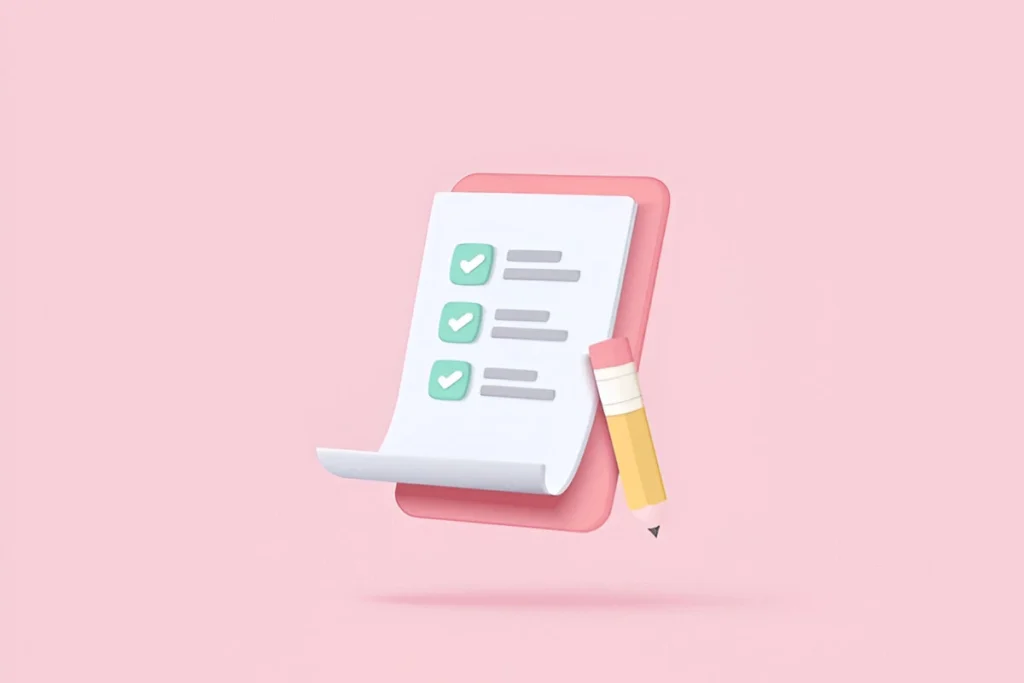
If you don’t practice sleep hygiene and make your bed comfy, you will be bad in one night, which is bad for your health and well-being. Most tinnitus sufferers are in the ‘sleep denied’ group, where not sleeping properly can compromise our organs’ functions.
- Who Invented a Pillow? Evolution and Significance of Pillows - February 24, 2025
- Rattan Sofa Halbrund Perfect For Luxury and Comfort - February 19, 2025
- Sweet Dreams Pillow A Luxurious Sleep Experienc - February 16, 2025
